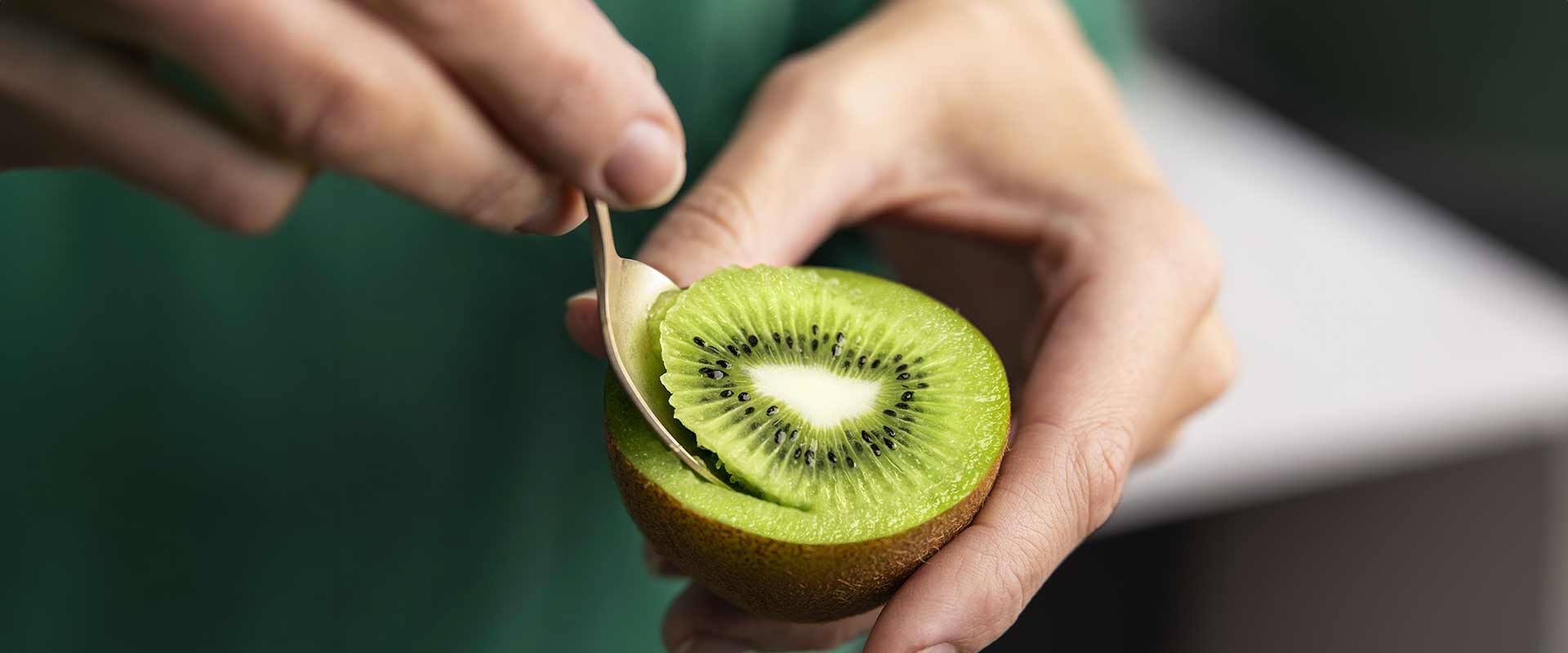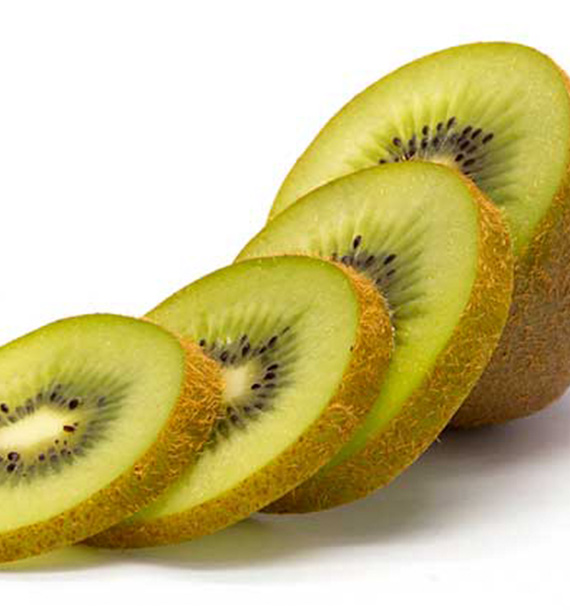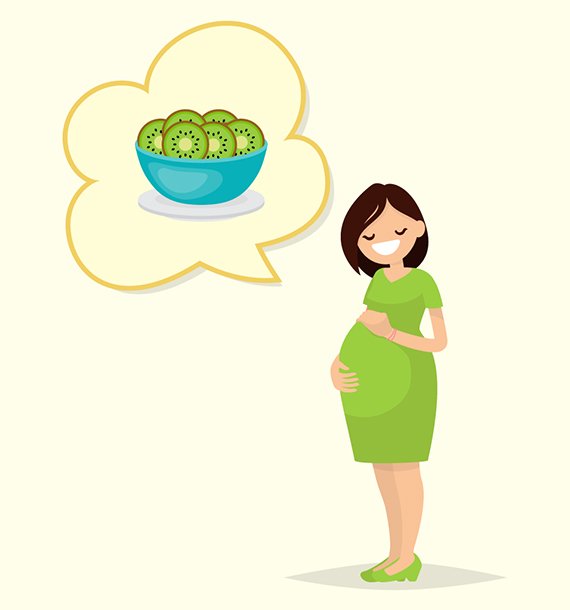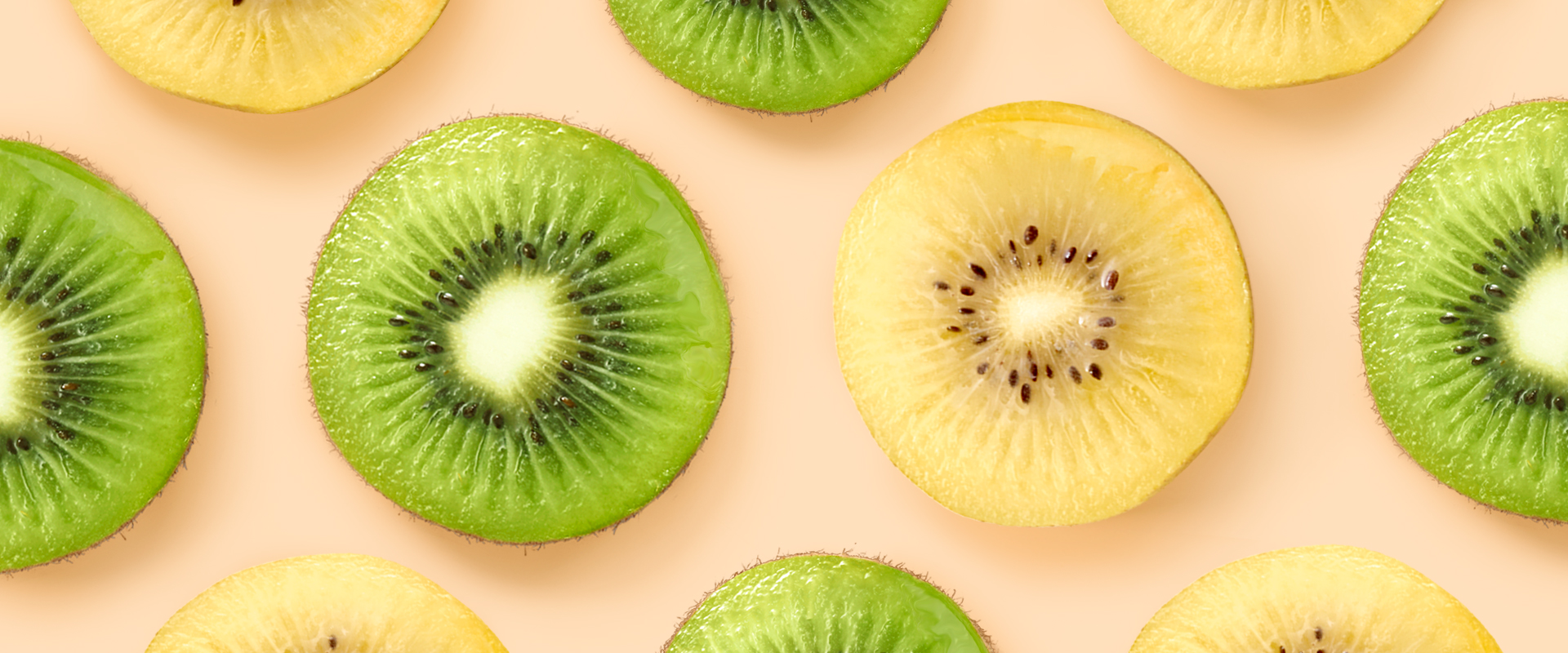Kiwifruit: a natural alternative to laxatives
-
Vitamin C
-
Potassium
-
Fibre
-
Zespri Green kiwifruit
-
Folic Acid
-
Over 65
-
Digestive Health
It’s time to talk toilet habits! Or rather, it’s time to talk about how to maximise our digestive comfort. Issues like constipation are common, especially amongst older adults. If it’s a problem that affects you or your family member, then this blogpost is for you. Together, we’ll explore the natural alternatives to laxatives as a treatment for constipation and discover why kiwifruit can play an important role in the health of your digestive system.
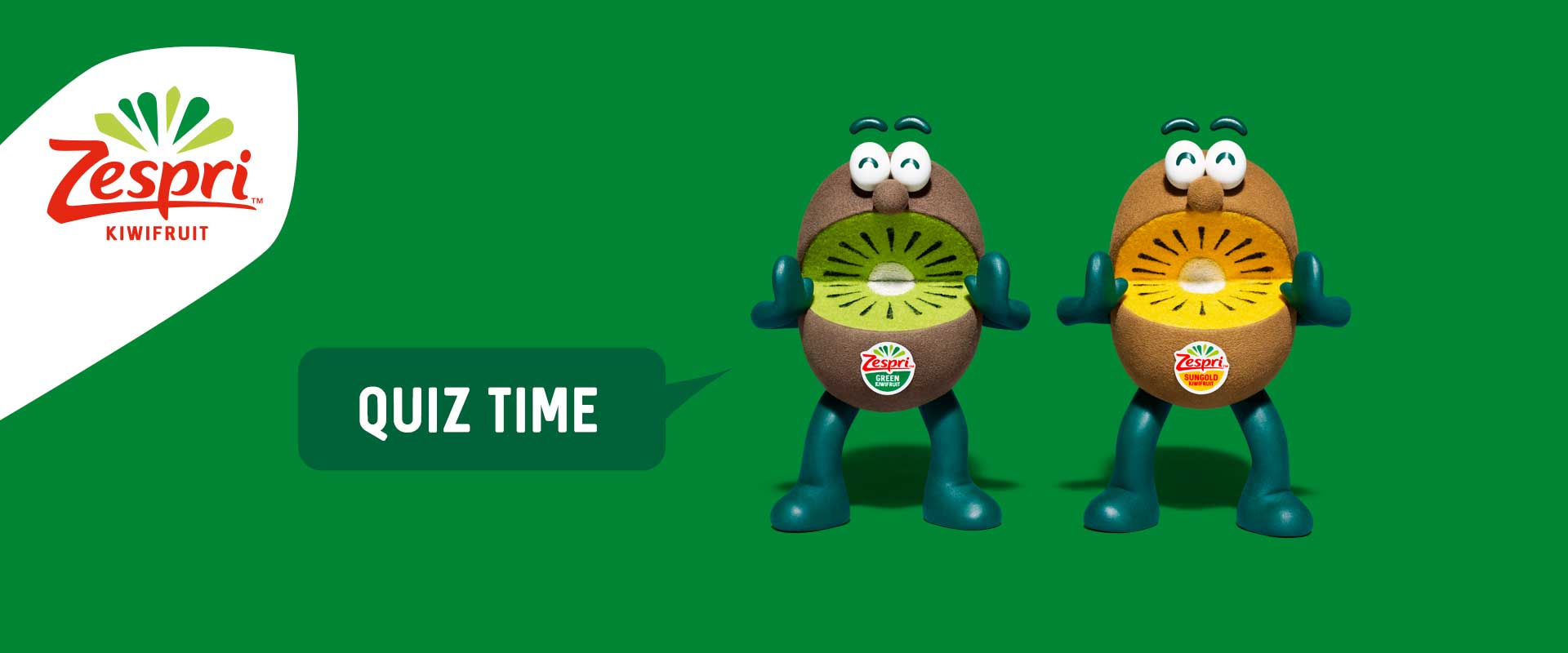
But first… a quick quiz!
Q1. What is constipation?
a) Having very hard stools that may be painful to pass
b) Experiencing fewer bowel movements than normal
c) A condition that can significantly affect quality of life
d) All of the above
If you answered D, well done! Constipation can be defined in all of those ways1.
Q2. What usually causes constipation?
a) Drinking too much water
b) Eating too much fibre
c) A combination of health and lifestyle factors
d) Doing too much exercise
And the correct answer is… C! Constipation is normally the result of slow or sluggish digestive system1. A number of things can cause this, including not eating enough fibre, not drinking enough water, and not doing enough exercise1.
Q3. Why are older adults more prone to suffering from constipation?
a) It is a normal part of ageing
b) Older adults often take more regular medications
c) Older adults often move around less
d) B and C
Yep, the answer is D! While constipation can be a frequent problem for older people, it is not necessarily a normal part of aging. People of all ages can be affected, which is why it is so important to consider the health and lifestyle changes that can help. More on this below!
What are natural laxatives?
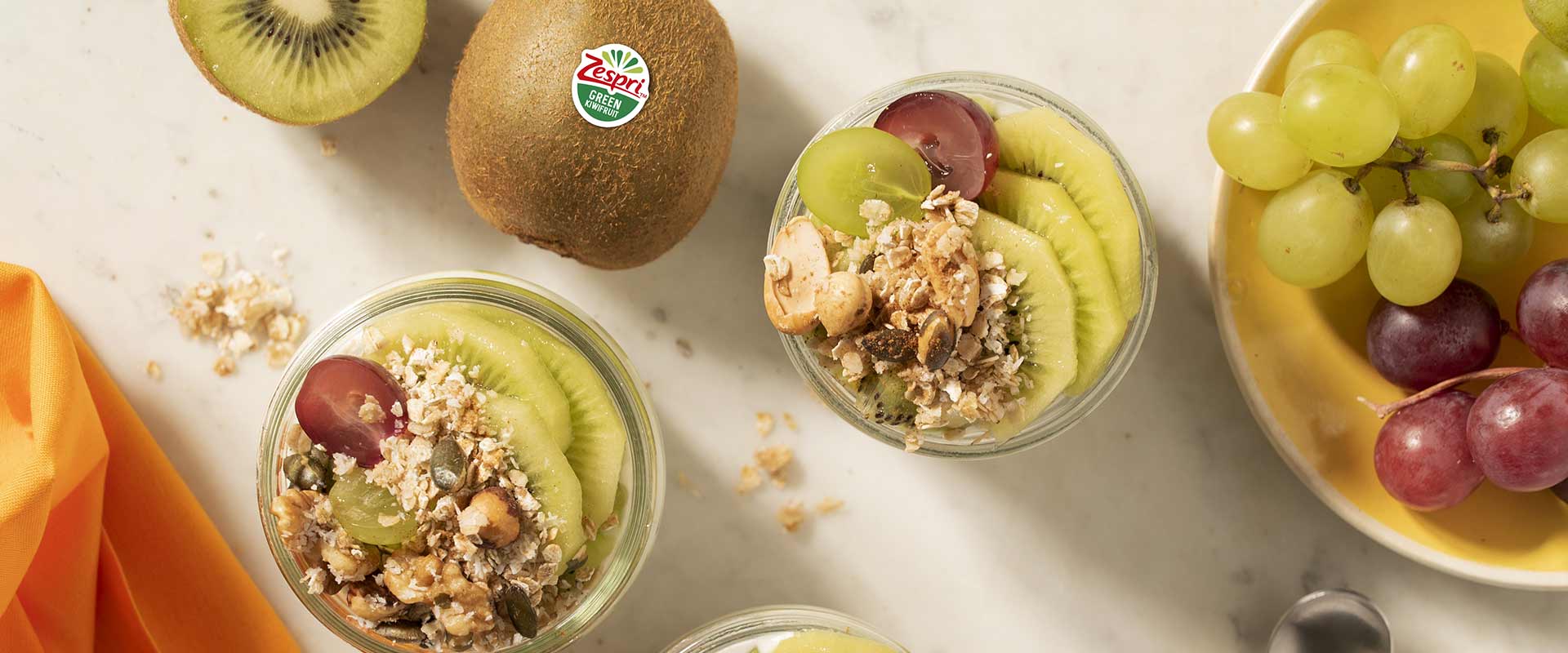
Natural laxatives are alternatives to laxative medications. They include certain foods, drinks, and herbs knowing for their digestive health benefits. Many natural laxatives contain fibre, which is the key nutrient we need to combat constipation1.
What natural laxatives can I take for constipation?
There are a number of options if you want to choose a natural laxative for constipation. Many people ask: ‘is fruit a laxative?’ And the answer is yes! Most fruits and vegetables are high in fibre, which makes them a natural laxative when eaten in sufficient amounts. You can also make homemade natural laxatives by combining foods high in fibre, magnesium, and probiotics. For example, you can mix kiwifruit, prunes, nuts, seeds, avocado and yoghurt into your very own digestive health smoothie!
Why is kiwifruit considered a natural laxative?
The answer is easy: the regular consumption of ZespriTM Green kiwifruit can bring digestive health benefits. In fact, we have the science to prove it! Green kiwifruit has been shown to relieve constipation and improve bowl movement frequency in a number of clinical studies2-3. This is because green kiwifruit is naturally high in fibre*. Find out more about the digestive health benefits of kiwifruit here.
*ZespriTM Green kiwifruit contains 4.3g of fibre per 100 kcal.
It's time for another quiz question!
Q4. What other property of ZespriTM Green kiwifruit makes it a great natural laxative choice?
a) It contains actinidin
b) It has a furry skin
c) It is low in calories
d) It is bursting with antioxidants
Gold star if you answered A! Actinidin, an enzyme which is naturally found in green kiwifruit, is scientifically proven to help your body breakdown food and aid digestion. That’s good news for those of us struggling with constipation.
What are the nutritional benefits of kiwifruit as a natural alternative to laxatives?

The great thing about choosing ZespriTM Green kiwifruit as a natural alternative to laxatives is that apart from fibre, it contains many other essential vitamins and minerals including magnesium, potassium, zinc, and vitamin C. On the other hand, laxative medication may strip your body of nutrients. Like many things in life, natural choices are often the best!
How many kiwifruits should I eat for a laxative effect?
By now you should realise the golden rule: regular fibre = regular bowel movements. But whilst adding more fibre to the diet to relieve constipation is a natural and effective alternative to laxative medications, but like any good habit, you must do it consistently to see results. Based on the results of the clinical trials mentioned above, we recommend two ZespriTM Green kiwifruit a day to help keep your digestive system running smoothing. Wondering how to incorporate them into your diet? It’s easy – take a look at the hundreds of delicious recipes we have put together here.
What other natural laxative remedies can I try for constipation?
Don’t forget, aside from taking natural laxatives, there are other simple diet and lifestyle changes that can help to relieve constipation. These include drinking more water and being more active. If your digestive health is something you are concerned about, try keeping track of how much water you are drinking and how many steps you are doing a day. You might find that your bowel habits are more regular on those weeks that you stay hydrated and move around more. And of course, you can also make a note of how often you are enjoying a kiwifruit or two.
Remember – lots of small changes add up to big benefits!
Sources
1. Johns Hopkins Medicine. Constipation. Available from: http://www.hopkinsmedicine.org/healthlibrary/conditions/digestive_disorders/constipation_85,P00363/ (accessed 10 October 2023)
2. Caballero N, Benslaiman B, Ansell J, Serra J. The effect of green kiwifruit on gas transit and tolerance in healthy humans. Neurogastroenterol Motil. 2020;32(9):e13874.
3. Chey SW, Chey WD, Jackson K, Eswaran, S. Randomized, comparative effectiveness trial of green kiwifruit, psyllium, or prunes in U.S. patients with chronic constipation. The American Journal of Gastroenterology. 2020;115:S229.

